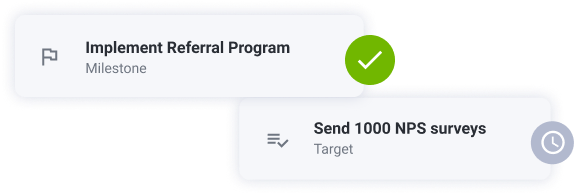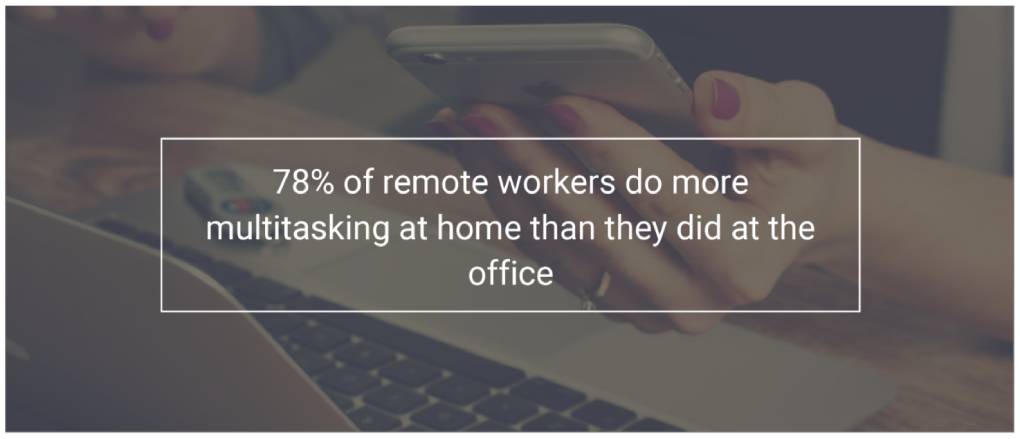Laura Iñiguez, Content Manager at Hirebook
Laura is a content and social media strategist with deep experience in Employee Engagement, People Management, and Culture. She works with Hirebook to bring their innovative best practices to life through content, videos, and webinars seen by thousands around the globe.
Pub: November 6 2020
Upd: December 21 2022
Now that office workers have been working from home for so long, it seems that the perks of it have disappeared. It’s normal to experience frustration and, with the winter coming, we could maximize the impact of these challenges of working remotely we’re experiencing at home.
With most companies moving towards a hybrid office, working remotely for at least a big part of the week will become the new reality for office workers. Being teleworking for so long now, some employees might not be as excited now as they might’ve thought they’d be when receiving such news. The dream of working from the comfort of your living room doesn’t seem so dreamy anymore and some people have come to realize they miss the corporate office routine.
The truth is, not everyone is cut out to work remotely, some people need to be around other working people to keep themselves motivated and focused on the job. Some people find it difficult to plug out from work when remote working at home and need a completely separate location to have a healthy work-life balance. Some people can’t cope with the distractions happening at their house, and so on…
If you find yourself thinking “I hate working from home”, you’re not alone. There are a few reasons why you feel this way and we’re going to spread these working issues out so you can make the changes you need to be more productive and happy if your employer is planning on having you working remotely most of the time.
1. Tech and Network Failures
About 50% of telecommuters said that this is a major challenge at work when working remotely. Having an internet or power outage is a remote workers’ worst nightmare. Or having your computer break down, your charger bitten by the dog… things you can’t always avoid. Even if you decide to go to your favorite coffee shop or any other public place to avoid workplace frustration, you can’t always rely on having good internet speed or a power outlet for your computer. So many things can go wrong that build up frustration in our jobs and we can find ourselves thinking these problems wouldn’t happen if we were in an actual office.
Get ahead of these situations and have a backup plan. Like an emergency hotspot device; your cellphone could be it but you should get a good data plan to be able to use it in those emergencies. Get a power bank or a backup tablet or computer, or use a third-party backup software for your computer in case technology fails you.
You could even check with your boss if it’s possible for them to lend you equipment from your office. According to Nulab:

And a third even admits to purchasing equipment to help them work remotely during the pandemic. The average employee spent about $194 on office equipment for their home's dedicated office space. Another financial strain for work-from-home employees is car insurance, especially since remote employees don’t need to commute. Remote workers should look into car insurance for rarely driven cars.
If a hybrid office is going to be permanent, maybe talk to your boss to help you provide you with the right tools, the ones they would probably provide at the office. In the end, the future belongs to those who prepare for it, and according to some data, an investment in digital transformation is not just a requirement but a basic need to perform our jobs.

2. Working Non-Stop
When working from home, work is all around us. It’s simply just too hard to switch off and enjoy our time off, this is especially hard nowadays when we have access to our jobs in the palm of our hands… by just peeping at our cell phone when being off the clock we can see if we have any notifications from our remote team members, a message, an email, anything; and we just can’t get peace of mind until we’ve read that message and responded, sometimes this can take a while if you have to look something up in your computer.
Sometimes we can’t help but put on some extra working hours because we feel that, since our managers can’t really see us, they could think we’re not working. There’s no over-the-shoulder accountability and we must prove that we are committed to our jobs by stretching our own schedule.
Working from home also means not having a fixated schedule, and you don’t need to get out of the office at a certain time to make it home for dinner, so we can just keep working and working. Having a Performance and Project Management tool like Hirebook can help you organize your calendar when your manager assigns you objectives to achieve in a certain amount of time, increasing your motivation and productivity and helping you to set up breaks.

In the end, we need to understand that work is never-ending, we will always have something to do, a matter to attend to, a new problem that needs our attention; and the company won’t fall apart if we’re not available at all times. If we don’t force ourselves to switch off and take breaks, we will most likely burn out and stop being effective.
Do not forget to take breaks, a little walk around the house can make the difference. Set appointments in your calendar for the end of the day, even if it is walking the dog, force yourself to have a check-out time, and plan activities for your own amusement and relaxation. Pause notifications on those apps related to work. Literally, spend your day as if you were at the office and you had to leave at a certain time. If you think you’re not able to unplug by yourself, ask for help! Maybe your partner or a friend can call you at a certain time to force you to sign off work.
3. Distractions
While being at home means no office distractions like co-workers coming to your desk or someone’s birthday, it also means dealing with other distractions, either your spouse is working there too or doing some chores, you may have children throwing tantrums, pets demanding attention, or even some delivery service ringing your doorbell. Distractions also often happen when we’re in the zone or on a very important video call. But sometimes we generate distractions, after all, there’s no accountability to keep you off social media or some other distractions like doing chores.
According to a survey conducted by Nulab:

And 40% of remote workers aren’t even working from a dedicated desk, nearly 20% of workers are making a go of it from the living room and 28.5% are working from the master bedroom. If you’re going to be working from home permanently or some time, it is important to set up an appropriate working space. Not only with the right supplies, but also a space where your family or people you live with know that they can’t interrupt you. Also, having a designated space for your work will minimize the sensation that your whole house is a working place and will help you with your work-life balance.
Remember to set timers you can use Toggl (or Toggl alternatives) to organize tasks and to remind you to have breaks and use those breaks to play with your pets or do something else that’s on your mind preventing you from focusing 100%.
4. Isolation
One of the most frustrating things remote workers face is isolation and loneliness. Even if you don’t exactly live alone, suddenly not having social interactions or any other type of team communication with coworkers takes a toll on your wellbeing. Our coworkers are the ones who completely understand those frustrations related to the job and suddenly not having opportunities to share and ask for help by just turning your chair or taking a short walk makes it difficult to maintain social connections. We sometimes feel that pinging them on Slack to ask for something is going to disturb them since we cannot actually see their faces. And it’s no secret that these relationships with coworkers are extremely important. Just because we’re working remotely doesn’t mean we can’t continue to socialize with them.
Organize video calls to check on each other, even have lunch together and catch up. If you’ve never actually met your colleagues, you can start a fun activity like a book club and meet weekly to discuss the book of the week. Just because you’re not physically together doesn’t mean you can’t be there for each other and create a fun social interaction.
At the end of the day, every worker, on-site or remote, experiences frustrating things related to their job, but it sometimes feels like the challenges of working remotely are different than the challenges we’re used to facing. There’s nothing wrong with feeling like sometimes we can’t cope with the remote work challenges anymore, but pointing out those things that make it difficult and do something to change them can help a lot and eventually you can find a good and healthy balance between your job and your personal life.
Photo credit: luis_molinero
- Relevant
- Recent
- Topics
- Archive
- April 2023 (1)
- March 2023 (1)
- June 2022 (1)
- May 2022 (3)
- April 2022 (3)
- March 2022 (5)
- February 2022 (2)
- January 2022 (3)
- December 2021 (3)
- November 2021 (4)
- October 2021 (5)
- September 2021 (8)
- August 2021 (7)
- July 2021 (2)
- June 2021 (3)
- May 2021 (5)
- April 2021 (8)
- March 2021 (4)
- February 2021 (3)
- January 2021 (3)
- December 2020 (6)
- November 2020 (9)
- October 2020 (1)
- September 2020 (5)
- August 2020 (4)
- July 2020 (1)
Discover More Hirebook Posts


.jpg)






